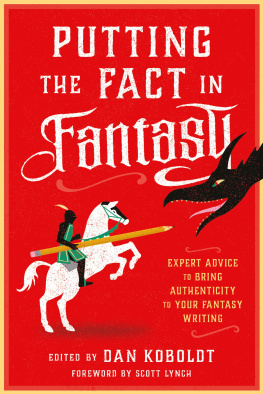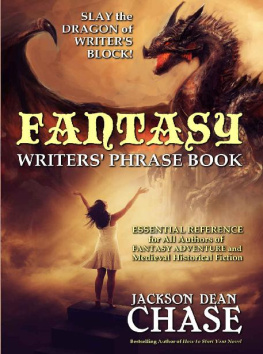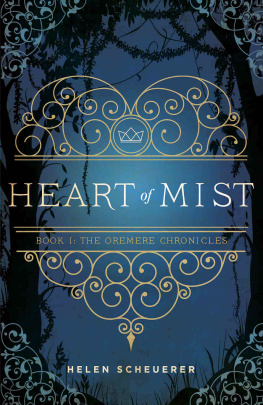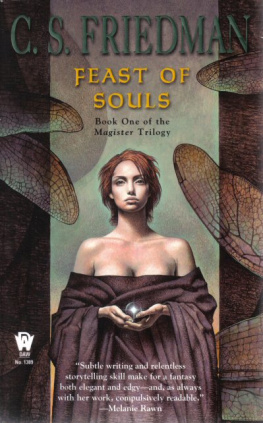ACT OF WILL
BOOKS BY A. J. HARTLEY
The Mask of Atreus
On the Fifth Day
What Time Devours
Act of Will
ACT
OF
WILL

A. J. HARTLEY

 A TOM DOHERTY ASSOCIATES BOOK
A TOM DOHERTY ASSOCIATES BOOK
New York
This is a work of fiction. All of the characters, organizations, and events portrayed in this novel are either fictitious or are used fictitiously.
ACT OF WILL
Copyright 2009 by A. J. Hartley
All rights reserved.
Edited by Liz Gorinsky
Book design by Mary A. Wirth
Maps by Jennifer Hanover
A Tor Book
Published by Tom Doherty Associates, LLC
175 Fifth Avenue
New York, NY 10010
www.tor-forge.com
Tor is a registered trademark of Tom Doherty Associates, LLC.
Library of Congress Cataloging-in-Publication Data Hartley, A. J. (Andrew James) Act of Will / A. J. Hartley1st ed. p. cm. ISBN-13: 978-0-7653-2124-4 ISBN-10: 0-7653-2124-6 1. ActorsFiction. 2. DramatistsFiction. I. Title. PR6108.A787A65 2009 823'.92dc22 2008038364
First Edition: March 2009
Printed in the United States of America
0 9 8 7 6 5 4 3 2 1
To Chris, my brother-in-arms.

ACT
of
WILL
BY
WILLIAM HAWTHORNE

Translated from the Thrusian by
A. J. HARTLEY



Table of Contents

U ntil a few years ago, the collection of manuscripts now known as the Hawthorne Saga had been sitting in a climate-controlled case in an obscure English library for over a century, baffling all attempts to decipher the strange language in which they were written. We knew from library records that they were once part of the Fossington collection and that they were almost lost when the east wing of Fossington House was badly damaged by fire in 1784. Parts of the second manuscript showed some light scorching, and there was moderately severe water damage to much of the first book, but how they were originally acquired and from where remains a mystery. The eighteenth-century records refer to the crate of Fossington manuscripts only as handwritten, very old, bound in calf, in indecipherable cursive: language unknown.
Being completely unreadable, the manuscripts would have remained no more than linguistic and historical curiosities were it not for the recent discovery of certain papers located in the attic of an Elizabethan manor house in Oxfordshire, the precise location of which I am not at liberty to reveal. I was first shown these papers eight years ago. Various experts concurred that the author was none other than the famous translator Sir Thomas Henby (15421609). The papers were all in Elizabethan secretary hand and difficult to read, which is the only explanation I can offer for not immediately recognizing that while some of them were in plain English, others were actually transcripts of the strange language featured in the Fossington House papers. Even after I had made the connection, it was another year before I realized that the English pages were actually translations of the so-called indecipherable cursive of the Fossington manuscripts, which actually turned out to be a previously undocumented language: Thrusian. How and with what assistance, if any, Henby accessed the key to this remarkable literary find, I cannot begin to imagine, but there is no question that he did, and left both direct translations of several dozen pages and notes by which the rest might be rendered into English.
I have made up for my slowness to realize the significance of my find by diligent work on the manuscripts ever since. Using Henbys translations and notes as a kind of Rosetta stone, I have been able to work out the grammar, diction, and tone of the Fossington House papers, which I have renamed the Hawthorne Saga for reasons that will become apparent. In the translation, I have used a modern, colloquial style in an attempt to captureor at least echothe uniquely sprightly and energetic Thrusian used by the author. The book in your hands, faithfully translated from the original, is the result. I only hope that you find my labor in bringing this ancient text to light to be worth the reading. If this meets with sufficient approval and I encounter no serious hurdles in the translation, I plan to complete work on the second volume of the series approximately one year from now.
A. J. Hartley, 2009
No identification of the placeor even the periodfrom which the original came has yet been made. All attempts to identify known landmarks, places, or geographical features have failed. Militarily, it lacks gunpowder and therefore seems early medieval, but the culture as presented seems later, more in accord with Renaissance Europe.

Show Business
T he day started quietly, which, as it turned out, was not so much ironic as completely misleading. I had risen late after a long night memorizing speeches by the dodgy light of a cheap tallow candle. Mrs. Pughthe miserable and vindictive woman who had been paid by the theatre to look after me since my parents died, which basically amounted to keeping me alive till my apprenticeship was donehad woken me at eleven oclock, then forced me to eat what looked suspiciously like a bowl of fried porridge. Why anyone would do anything with porridge, let alone fry it, is a serious bloody mystery to me.
It was my eighteenth birthday, which meant that my theatre apprenticeship was officially over: now the company would either take me on as a full member, or they would cut me loose. Either way, this would be my last day in a dress. Thank God.
Im not sure why the Empire doesnt allow women onstage. Its pretty stupid when you stop to think about it. But everyone is used to it and it keeps the likes of me in steady work, so Im not complaining. Admittedly, most of the parts I got as a woman were comprised of simpering love poetry and vacant smiles, but once in a while I got to do a good death scene, or double as a nameless soldier in a battle, or something. That was pretty fun, and it got me out of those bloody corsets for ten minutes or so.
But none of it equaled the time I got to play a prince. I had three long speeches and a fight scene and, best of all, I got to write some of my own lines. (All actors think theyre poets. Most of them arent.) I got a standing ovation at the end of each performance. Not all the boy actors graduate to mens roles, but I was the best we had at the moment, so I figured thered still be a job for me when I hung up my skirt for the last time. Probably. Not everyone in the company appreciated my talents, of course, least of all the really stupid ones, whoneedless to sayhad a lot of sway in the company. If they didnt take me in as an actor, Id probably be able to make a living writing for them, but it wouldnt be much of a living, so I was a bit apprehensive about what theyd tell me after the show.
Next page















